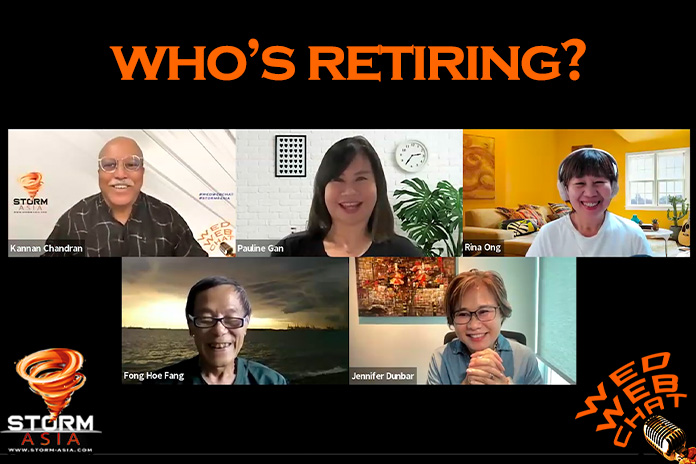
THE idea of retirement will bring up very personal images in an individual’s mind.
For the pioneer generation, it was a hard stop to working life. At a time when travel wasn’t so easily accessible and technology was not a mass consumer product, it meant time spent waiting for the inevitable.
Times have changed and how we approach issues like retirement has had to adjust accordingly. And given the changes reshaping society, expect more changes down the line.
With automation, more work is being done by less people.
Meanwhile, the global population is rising.
Rising costs and longer lifespans will mean people will have to work longer to have food on the table and live an average life.
But will there be jobs to be had?
It’s quite likely, more people will probably be out of jobs before they reach retirement age, a construct of the state to make for easier management of limited resources.
Is Retirement A State Of Mind?
Many might opt to become “pre-tirees”. Someone who continues to create wealth, share their knowledge or help socially, on a part-time or reduced hours basis.
Already, today, many don’t view retirement as the end of the road, nor as the last phase in their lives.
That’s certainly the case for the panellists in this WED WEB CHAT, who are actively engaged in various endeavours, from building community bookstores to organising mass ukulele strum alongs and coaching people on how to retire.
Panellists for the WED WEB CHAT: Retirement…Not The End Of The Road are: Jennifer Dunbar, non-financial retirement coach; Pauline Gan, Senior Consultant & Facilitator at Catalyse Consulting; Rina Ong, Co-founder Tapestry Asia; and Fong Hoe Fang, Founder, Word Image.
They discuss a range of topics around the theme of retirement, to prove that it’s not something you have to do. Not when there are so many options open to you; from volunteering to providing services and continuing to remain active in society.
What’s Your Legacy?
Many people want to ensure that by the time they exit the planet, their next of kin would be comfortably placed with property and money.
But the idea of legacy is viewed differently by the panellists in the video below.
Rina Ong is leaving behind music videos to help people play the ukulele.
Pauline Gan thinks her sons and the magazine she co-founded form her legacy.
Fong Hoe Fang reckons it’s about memories.
Jennifer Dunbar says it’s the love you leave behind.
What do you want your legacy to be?
How Much Do You Need To Retire?
Financial concerns plague many through most of their lives. But instead of trying to amass more wealth, Hoe Fang reckons you should evaluate your situation.
Are you in debt? Do you have a roof over your head?
Do you have friends?
It’s not always about money.
Filial Piety And Making Connections
Hoe Fang’s mother came from China and worked as a washerwoman all her life.
“So she never enjoyed the good stuff that everybody else enjoyed,” Hoe Fang explains. She was very pleased to observe the simple things in life that can be found in Singapore.
She commented to Hoe Fang: “Who says Singapore is small? There’s so much land here. We can build how many more HDB flats.”
Hoe Fang found that experience meaningful and enjoyable. “Really, in those last two years, I got to know my mum much, much better.”
Hoe Fang also picked up badminton again. Playing with a younger group meant he could make fresh friends and build new relationships.
It provided him with a new lease on life.
Watch the full discussion of WED WEB CHAT — Retirement: Not The End Of The Road! below.
Watch our previous wedwebchats: https://storm-asia.com/category/wed-web-chat/
If you have a topic that is of interest, or have someone who would make a good panellist with a thought-provoking perspective on a subject, please email editor@storm-asia.com with your details and a short summary.





















